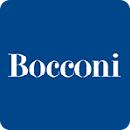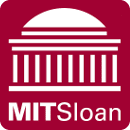As someone who has dedicated their professional life to reducing operational costs, a cost-conscious ethos is deeply ingrained in me. Challenging the 100% solution to find the best ‘bang for the buck’ is a core part of my role and something I do almost daily.
It was with this mindset that I approached the challenge of pursuing an MBA that would also accommodate my family and travel commitments. While online degree programs and distance learning have existed for years, the recent surge in online course popularity and availability led me to explore the feasibility of building an MBA entirely from MOOCs offered by some of the world’s top business programs.
After researching the curricula of reputable universities like Harvard, Berkeley, Wharton, and Stanford, I identified the following core curriculum:
- Accounting
- Business Strategy
- Economics
- Finance
- Marketing
- Leadership
- Operations
- Statistics / Data Analysis
- Ethics
- Entrepreneurship
Most resources suggested dedicating 8-12 hours per week per subject. As a father of two with a demanding job, I decided to treat this as a long-term goal, tackling one subject at a time. My commute offered a perfect opportunity, allowing me to allocate an hour per workday to study on my tablet during transit.
All told, it was a 2.5-year effort. However, the flexibility this approach provided allowed me to manage it effectively within my schedule. The quality of the courses was phenomenal, and I highly recommend this path to anyone considering it. If you have questions or would like to learn more about my experience, please feel free to reach out.

Financial Accounting (Wharton University)
This course develops the technical skills required to analyze financial statements and disclosures for financial analysis purposes. Students learn how accounting standards and managerial incentives influence the financial reporting process. The curriculum covers the three fundamental financial statements: income statement, balance sheet, and statement of cash flows, providing practical expertise in financial statement interpretation and analysis.
Transcript & Final Grade - 82.0%

Foundations of Business Strategy (Darden School Of Business)
This course explores the underlying theory and frameworks that form the foundation of successful business strategy. Students develop strategic thinking capabilities through tools for conducting comprehensive strategic analysis. The curriculum focuses on analyzing competitive contexts, making reasoned organizational recommendations, and maximizing value creation. Content is designed for aspiring managers, entrepreneurs, social entrepreneurs, analysts, and consultants seeking to master strategic fundamentals.
Transcript & Final Grade - 85.0%

Microeconomics Principles (University of Illinois)
This course provides an introduction to individual decision-making within the broader economic system, covering both consumer and producer behavior. Students explore product market functions, firm theory under various competitive conditions including monopoly scenarios, and government’s role in promoting economic efficiency. The curriculum emphasizes practical application of microeconomic principles to real-world situations.
Transcript & Final Grade - 86.7%

Corporate Finance (Wharton University)
This course provides the fundamentals of finance, emphasizing their application to a wide variety of real-world situations spanning personal finance, corporate decision-making, and financial intermediation. Key concepts and applications include: time value of money, risk-return tradeoff, cost of capital, interest rates, retirement savings, mortgage financing, auto leasing, capital budgeting, asset valuation, discounted cash flow (DCF) analysis, net present value, internal rate of return, hurdle rate, payback period.
Transcript & Final Grade - 75.9%

Marketing (Wharton University)
This course teaches marketing fundamentals through the lens of customer decision-making processes. Students explore branding strategies, customer centricity, and new market entry approaches. The curriculum focuses on practical go-to-market strategies, helping students understand customer drivers and their implementation prior to investment decisions.
Transcript & Final Grade - 94.0%

International Leadership and Organizational Behavior (Bocconi University)
This course addresses leadership challenges in increasingly global and multicultural business environments. Students learn to work effectively with international customers, suppliers, and globally dispersed teams. The curriculum covers individual and collective behavior management in intercultural contexts, preparing students for expatriate assignments, global online communities, and international development work.
Transcript & Final Grade - 96.6%

Operations Management (Wharton University)
This course teaches business process analysis and improvement techniques for both service and manufacturing environments. Students learn to enhance productivity, expand customer choice, reduce response times, and improve quality. The curriculum covers Lean Operations, Six Sigma, Toyota Production System, bottleneck analysis, flow rates, and inventory management principles.
Transcript & Final Grade - 90.4%

Statistical Thinking for Data Science and Analytics (Columbia University)
This course establishes the statistical foundation for data science applications. Students learn how data scientists apply statistical thinking in data collection design, data visualization for insight generation, evidence-based decision making, and predictive model construction. The curriculum bridges statistical theory with practical data science applications.
Transcript & Final Grade - 88.0%

Business Ethics for the Real World (Santa Clara University)
This course provides comprehensive understanding of ethics in business contexts and commonly encountered ethical dilemmas. Students learn practical approaches to identifying ethical challenges, gathering assessment information, analyzing complex ethical choices, and developing resources for ethical action. The curriculum balances theoretical foundations with practical applications for managers at all career levels.
Transcript & Final Grade - 94.2%

Entrepreneurship 101 (MIT / Sloan University)
This course employs case study methodology featuring MIT entrepreneurs across diverse sectors including mobile applications, 3D printing, power electronics, international development, and manufacturing. Students learn the entrepreneurial journey from initial idea or technology to market understanding, focusing on identifying target customers and value propositions. The curriculum emphasizes practical application through real entrepreneur stories and experiences.

